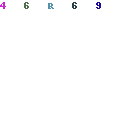Tunca presents music app test during Cellobration weekend

Cellist and professor Ozan Tunca traveled from Turkey to present his Musical Talent iOS App as part of Cellobration weekend. He developed the app in 2010 to test musicians and prospective students for aural abilities. Photo courtesy of Tunca.
As part of Cellobration weekend, music professor Marta Simidtchieva brought Turkish cello professor Ozan Tunca on campus to present his Musical Talent iOS App.
Tunca’s visit was made possible by a grant Simidtchieva received from the Meridian Society. The Meridian Society is an organization of women dedicated to supporting a variety of SIUE programs.
The app, which Tunca developed in 2010, tests students on their musical aural skills–distinguishing pitch, rhythm and melody–and can be administered in roughly 10 minutes, according to Tunca.
“The whole idea works when you can test people’s talents,” Tunca said. “Everybody wants to know if [their] children have special abilities in music.”
Simidtchieva said Tunca has gained a huge reputation internationally not only as a cellist but also as a pedagogue and that his idea of using technology is “very important.”
“Nowadays the younger generation is technologically oriented. Today everyone is using their phones their iPads or technology to listen,” Simidtchieva said. “It’s very interesting that he’s using the technology like the iPad and iPhone to reach out.”
Tunca, who teaches at The Anadolu University State Conservatory in Turkey, said the quality and number of students being trained, who start learning from institution instructors in fifth grade, decreased. In response, he decided to develop the app to recruit students by “letting them notice their talents.”
Parents with iPads and iPhones, according to Tunca, can have their children who are interested in learning a musical instrument take the test. More prospective students can be tested and parents can know whether their children have developed aural skills.
“Musical aural skills do help a lot with trying to learn an instrument,” Tunca said. “You have to be able to develop in your memory the rhythm and melodies.”
According to Tunca, the app can test as many as 50 students within a room at a time and is “less time-consuming.”
Tunca said as a result, he has gained a lot of “good” students.
Successful performance on the Musical Talent iOs App test means that “you will have advantages” while studying music, but an unsuccessful test result, according to Tunca, “does not mean that you cannot develop your skills by further study.”
“Many researches show that it is possible to develop aural skills on music by practice,” Tunca said.
Tunca also taught two master classes and performed a recital as part of Cellobration weekend.
Filed Under: General CAS Stories • Music












